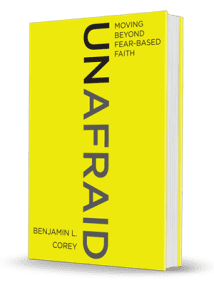5. At least become willing to delay your plan.
If you’ve gone far enough in your process that you’ve actually developed a general or specific plan or intent to follow through on suicide, try to become willing temporarily delay acting on it– even if it’s just an internal commitment to not do it over the next 24, 48, or however many hours. Make this promise to yourself. Give yourself a fighting chance to at least think this decision through with more time and more help for clarity.
If you’ve been thinking about this for a while, it can’t hurt to give yourself a little more time. If you only started seriously thinking about this recently, you owe it to yourself and others to give the decision a little more time. Either way, the first thing to do is buy yourself time.
4. Tell someone– anyone.
Don’t process these thoughts and feelings alone– please try telling someone you trust. Consider calling the National Suicide Prevention Hotline at 1-800-273-8255, calling your doctor, or taking yourself to an emergency room.
If those options don’t appeal to you, at least tell a friend or someone you trust. Be honest about how you’re feeling, be open about any plans or intent you may have formulated. If you can, make a promise that you will talk to them before deciding to act on your plan.
The more people you tell, the better.
3. Remember that most people who survive a suicide attempt are deeply grateful they survived.
You may feel alone in this moment, but you are not the first person to think about ending their life. You’re not the first to contemplate it, try it, or successfully do it. From those who have been where you are right now, we know this:
Those who act on their plans usually regret it, and are deeply grateful they survived.
Somewhere around 90% of people who survive a suicide attempt go on to live full lives, realizing that attempting to end their own life was a mistake, no matter how rational it felt in the moment. Many regret the decision instantly, such as we’ve seen in interviews with people who survived jumping off a bridge. Many bridge jumpers report experiencing regret over their choice to die as soon as they jumped.
As hard as it might be, trust the wisdom of those who have been where you are: they acted on their plan and regretted it.
2. Make a list of all the lives that would be impacted or devastated if you took your own life.
You may feel isolated and alone right now, but trust me: there’s a list of lives that would be significantly impacted if you follow through on your plan. As hard as it might be to think about others right now, make a list of their names and at least try to consider how suicide might alter their lives.
Loving someone who commits suicide is deeply traumatic. Please think about what this would do to your kids? To your parents? Siblings? And don’t stop there– suicide is traumatic even for coworkers or other students at school. If you’re going to make the decision to commit suicide, please wait and at least gather information regarding what would happen after you die. A critical piece of information you need to consider is the long list of lives that will be impacted for years to come.
1. Try this exercise: Imagine what you’d do if suicide wasn’t an option.
While suicide is a response to an overwhelming amount of pain and sadness, the ultimate act itself in many ways is a failure of imagination. Suicide feels like it becomes the only viable option because in that moment, our imagination can’t see any other options.
Since we know that most people who attempt and survive suicide go on to live full and normal, happy lives, what we do know is that the building blocks to a better life are there if we can trigger our imagination to look for them.
So, try this: sit down with a paper and pen and imagine that it were impossible to commit suicide. If dying wasn’t an option, what would you do? What are the building blocks that could at least one day lead to a normal, happy life? If you had no choice but to live the next 5, 10, or 20 years, what could you do with them?
Become willing to let this exercise trigger your imagination. Become willing to consider that if dying were not an option, their are still others.
…
While the issue of suicide is a stigmatized topic, I don’t think it’s an abnormal experience to feel so much pain that you at least consider, to one degree or another, the idea that ending life is the only solution.
As hard as it is to imagine in the moment, it’s not the only solution– but it is the solution most people instantly regret trying.
Instead, give yourself a chance– give those in your life who care about you a chance– and at least try these things, first.
 Dr. Benjamin L. Corey is a public theologian and cultural anthropologist who is a two-time graduate of Gordon-Conwell Theological Seminary with graduate degrees in the fields of Theology and International Culture, and holds a doctorate in Intercultural Studies from Fuller Theological Seminary. He is also the author of the new book, Unafraid: Moving Beyond Fear-Based Faith, which is available wherever good books are sold. www.Unafraid-book.com.
Dr. Benjamin L. Corey is a public theologian and cultural anthropologist who is a two-time graduate of Gordon-Conwell Theological Seminary with graduate degrees in the fields of Theology and International Culture, and holds a doctorate in Intercultural Studies from Fuller Theological Seminary. He is also the author of the new book, Unafraid: Moving Beyond Fear-Based Faith, which is available wherever good books are sold. www.Unafraid-book.com.
Keep up to date with BLC! Visit his NEW site, and be sure to subscribe to subscribe to his new posts and updates, right here:
You can also follow BLC on Facebook:

















